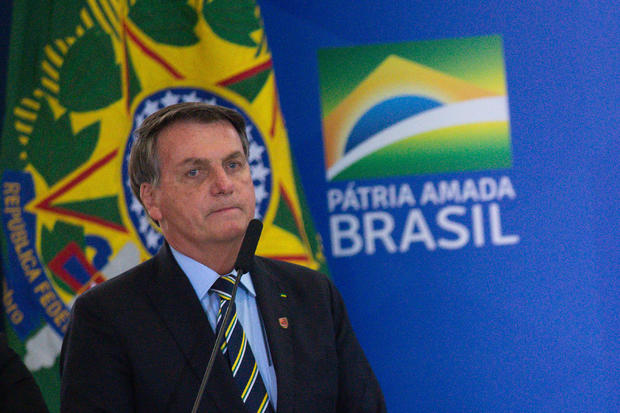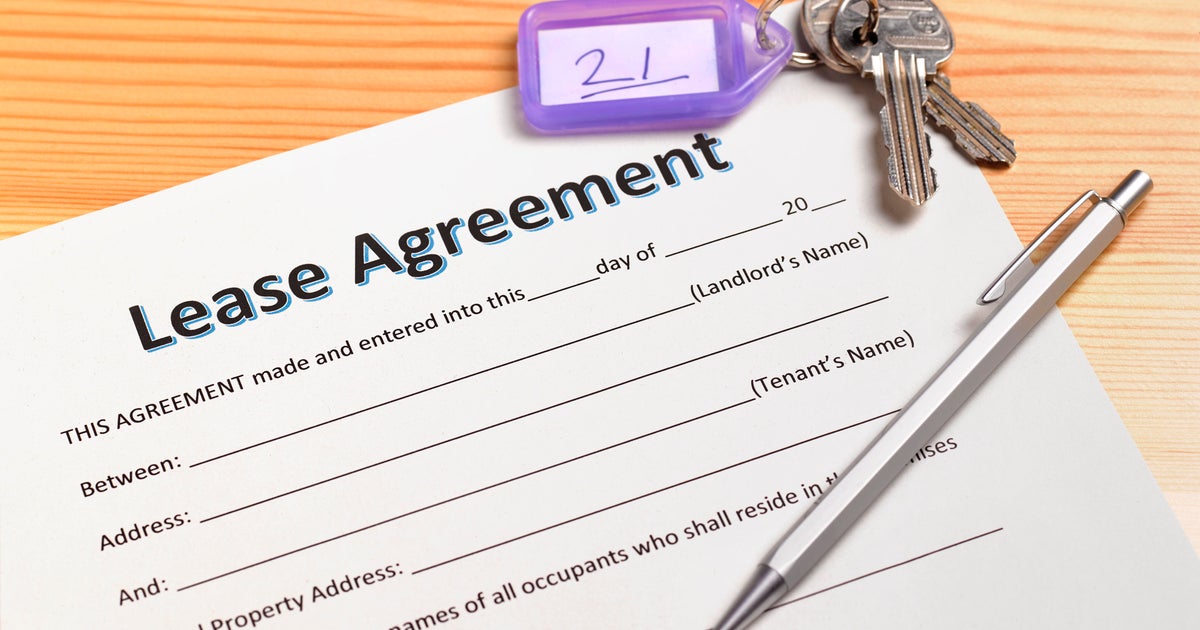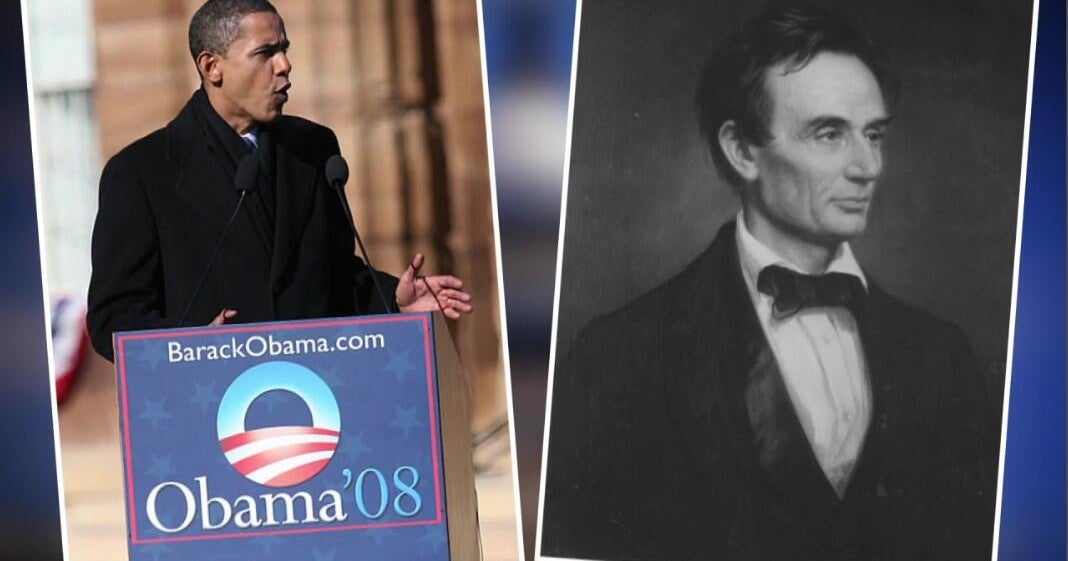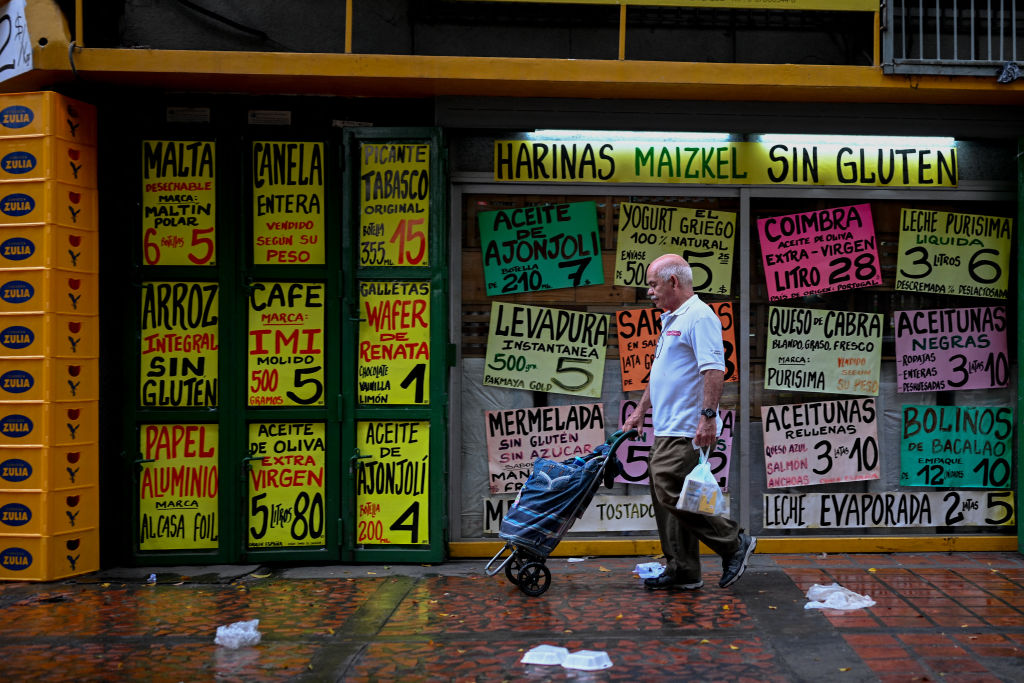Brazil on track to surpass the U.S. in coronavirus deaths this summer
Coronavirus cases have surged dramatically in Brazil as the country struggles to put a lid on the pandemic. On Tuesday, Brazil experienced a record increase of nearly 35,000 daily coronavirus cases.
Gimena Sánchez-Garzoli, the Washington Office on Latin America (WOLA)'s director of the Andes, told CBS News on Wednesday that she wouldn't "trust" numbers released by the Brazilian government. She believes they're much higher than what has been reported, citing Brazilian President Jair Bolsonaro's lack of transparency on the data.
"There are questions about really how much testing is going on in most of the areas worst affected, which may also influence the numbers," she said. "The fact that it's spreading like wildfire is completely not a surprise."
Thus far, the U.S. has suffered roughly 70,000 more COVID-19 related deaths than Brazil. However, the Institute for Health Metrics and Evaluation (IHME), part of the University of Washington's School of Medicine, projects Brazil's death toll will surpass the United States' sometime in July, according to its latest modeling.
The Latin American country has recorded more than 45,000 deaths and over 900,000 confirmed cases as of Wednesday, trailing behind only the U.S. in both categories. Much of the blame for the handling of the pandemic has gone to Bolsonaro. Sánchez-Garzoli said he takes the "prize for the most disastrous combination of denial and lack of taking any measures."
"Brazil basically needs those informal workers to go out there to keep the economy growing and so, it's exposed and given confusing messages to the poorer and most vulnerable Brazilians," Sánchez-Garzoli said. "At the same time, he's fighting with the states and local authorities who have tried to impose guidelines and measures to try to contain the contagion... There's now a major crisis throughout the country, making it the epicenter in the Americas and it's hitting disproportionately the poorer areas of Brazil."
Amid the pandemic, Bolsonaro downplayed the impact of the virus and continues to object to a national lockdown. He also fired his health minister as the crisis unfolded in April, and another resigned mere weeks into the job. Bolsonaro has also equated the virus to the flu.
However, Sánchez-Garzoli also said there's been a "general reluctance" from Brazilians to follow guidelines anyway, especially when the virus first started spreading. Now, the numbers appear to be reflecting the fallout from that reluctance.
"The problem is that the health infrastructure is not there to attend to the majority of people," she said. According to Sánchez-Garzoli, this will have devastating consequences on indigenous tribes in Brazil.
"This is an added factor that is leading to the extinction of different groups," she said. "All in all, we haven't seen the full extent of damage that will happen in Brazil. It's just the beginning."
Earlier this month, the World Health Organization declared South America the new epicenter of the virus. Dr. Michael J. Ryan, WHO's health emergencies program executive director, said Wednesday that the pandemic is "still quite severe" in Brazil.
"It's a moment of extreme caution in Brazil," he said. "There needs to be a focus on physical distancing, on hygiene, on reduced crowding and being able to support populations, particularly populations from ethnic minorities, for people living in difficult conditions and urban environments and poorer conditions."
He believes if there's a "full scale commitment" on behalf of Brazil and its people, they will "succeed in bringing this under control and emerging from this as quickly as possible."




